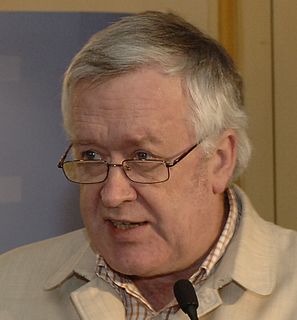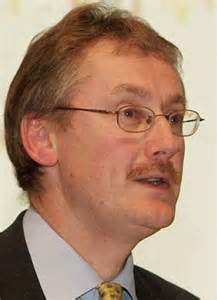A Quote by Jonathan Sacks
Europe is dying. That is one of the unsayable truths of our time. We are undergoing the moral equivalent of climate change and no one is talking about it.
Related Quotes
We can no longer completely avoid anthropogenic climate change. At best, limiting the temperature rise to two degrees is just about possible, according to optimistic estimates. That's why we should spend more time talking about adjusting to the inevitable and not about reducing CO2 emissions. We have to take away people's fear of climate change.
Being told about the effects of climate change is an appeal to our reason and to our desire to bring about change. But to see that Africans are the hardest hit by climate change, even though they generate almost no greenhouse gas, is a glaring injustice, which also triggers anger and outrage over those who seek to ignore it.
Many people have the impression that there is significant scientific disagreement about global climate change. It's time to lay that misapprehension to rest. There is a scientific consensus on the fact that Earth's climate is heating up and human activities are part of the reason. We need to stop repeating nonsense about the uncertainty of global warming and start talking seriously about the right approach to address it.
It is impossible to talk about slowing climate change without talking about reducing CO2 emissions. Equally, it is impossible to talk about adapting to climate change without considering how we will feed ourselves. And it is out of the question that we can adapt agriculture without conserving crop diversity.
Global Warming Snowstorm Algore, paralyzing the upper Midwest two weeks before winter. Every time he shows up someplace, every time, it's almost comical, every time Al Gore shows up someplace there's either an outbreak of weather that is the exact opposite of what he's talking about, he never does seem to get embarrassed. That's why they stopped calling it global warming and now call it climate change so that virtually every perceived abnormality can be said to be caused by climate change.
Climate scientists think of nothing but climate and then express their concerns in terms of constructs such as global mean surface temperature. But we live in a world in which all sorts of change is happening all the time, and the only way to understand what climate change will bring is to tell stories about how it manifests in people's lives.
If you speak [ about violence against Israelis], you are in an unspeakable place, have become a Nazi or its moral equivalent (if there is a moral equivalent). It certainly terrifies, but perhaps also it is a linguistic permutation of state terrorism, an assault that stops one in one's tracks, and secures the continuing operation of the regime and its monopoly on politically intelligible speech.





































